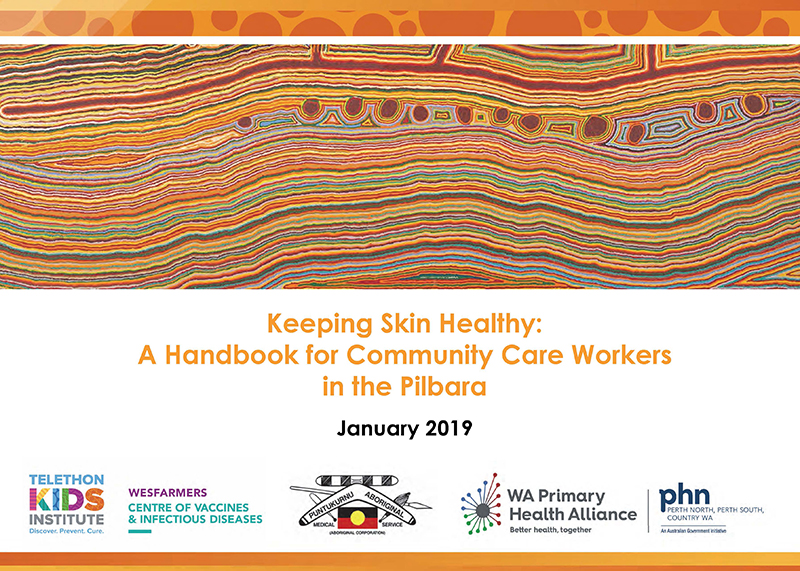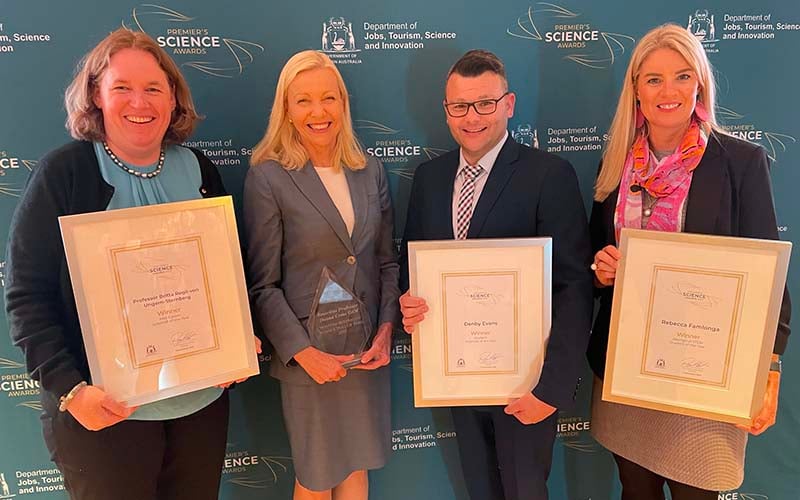Search
Research
Adjunctive protein synthesis inhibitor antibiotics for toxin suppression in Staphylococcus aureus infections: a systematic appraisalA summary of the literature regarding the use of adjunctive protein synthesis inhibitors for toxin suppression in the setting of S. aureus infections is presented
Research
Scabies and impetigo in Timor-Leste: A school screening study in two districtsScabies and impetigo are common in Timor-Leste, with very high prevalence of scabies in the rural district of Ermera

News & Events
Beating the bugs: a new resource helping to keep skin healthyA year after launching the first National Healthy Skin Guideline to address record rates of skin infections in Australia’s Indigenous communities, The Kids Research Institute Australia has released a new resource as part of the guideline.

News & Events
Major grant empowers community voices to drive reduction in skin infectionsAboriginal community members throughout the Kimberley will take a lead role in driving healthy skin messages within their own communities thanks to a major funding boost to The Kids Research Institute Australia’s SToP Trial.
Research
Hospital admissions for skin infections among Western Australian children and adolescents from 1996 to 2012The objective of this study was to describe the occurrence of skin infection associated hospitalizations in children born in Western Australia (WA).
Research
Hospital admissions for skin infections among Western Australian children and adolescents from 1996 to 2012Skin infections are a significant cause of severe disease, requiring hospitalization in Western Australian children, particularly with Aboriginal children
Research
Australian Group on Antimicrobial Resistance surveillance outcome programs - bloodstream infections and antimicrobial resistance patterns in Australian children and adolescents 2022 - 2023Between January 2022 and December 2023, there were 1,827 bloodstream infection (BSI) isolates in 1,745 children and adolescents reported to the Australian Group on Antimicrobial Resistance (AGAR) surveillance outcome programs, with 40% of episodes in children aged < 12 months.

News & Events
The Kids Research Institute Australia researchers take out prestigious Premier’s Science AwardsThree outstanding researchers have won 2023 Premier’s Science Awards, with another inducted into the prestigious WA Science Hall of Fame.
Kaal is a proud Noongar boy, he loves playing football, but this season Kaal is about to tackle a new and unexpected challenge… eczema.
Research
Molecular Detection of Scabies by PCR Using a Next Generation Sequencing (NGS) ApproachIn recent years, the interest in molecular diagnostic methods for the detection of many pathogens has grown substantially.
